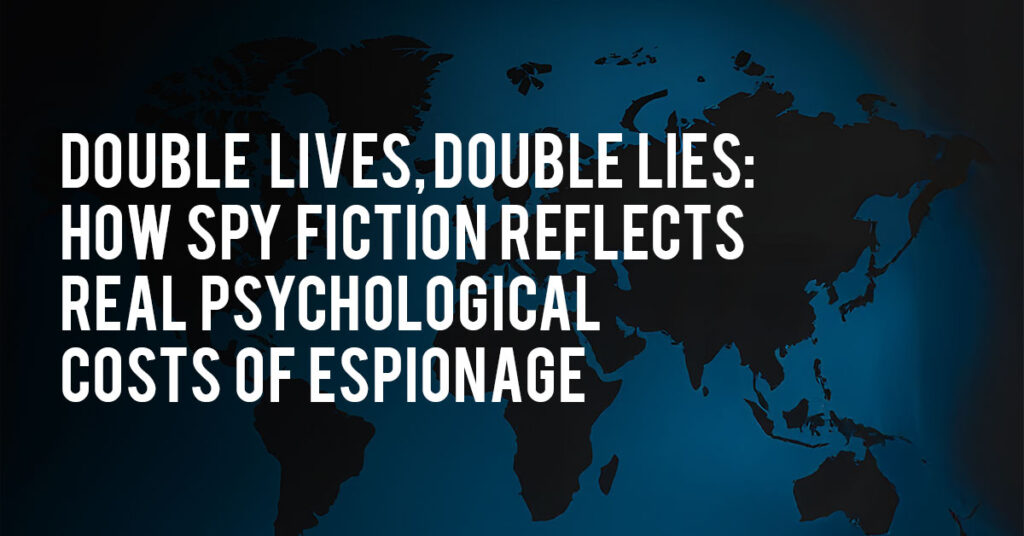In the complex and shadowy world of intelligence, truth is not only elusive, it is perilous. This reality, thoroughly examined in studies on undercover policing, provides the foundation upon which much of spy fiction rests. The best espionage novels do not invent psychological turmoil for dramatic effect; they draw inspiration from the documented emotional and ethical tolls experienced by real agents who must suppress their identities and live in deception. Spy fiction is compelling precisely because it echoes these truths, transforming real psychological struggles into narrative form.
The psychological effects of long-term undercover work, disassociation, anxiety, loss of identity, and emotional blunting have been extensively studied. Operatives report blurred boundaries between their real selves and their assumed personas, often describing how the role becomes embedded in their sense of self. This is not far from what spy fiction repeatedly explores: protagonists who no longer know who they are, who begin to question their memories, their motivations, and the very nature of reality around them. These fictional portrayals reflect the lived experiences of real undercover officers, who may develop what researchers term “role engulfment,” where the assumed identity dominates the personal one. In fiction, this psychological fracture creates rich internal conflict; in reality, it can lead to long-term emotional harm.
Ethical conflict also plays a major role in both intelligence work and the stories it inspires. In the field, undercover officers often navigate morally ambiguous terrain, engaging in manipulation, betrayal, or silence for the sake of a higher mission. These ethical tensions are a recurring source of psychological strain. Research shows that operatives often carry guilt for broken trust, failed relationships, or collateral damage. Spy fiction channels this guilt into its characters, portraying them as both protectors and deceivers, caught between institutional duty and personal conscience. This duality heightens emotional realism and underscores the genre’s ethical complexity.
Another overlap between research and fiction is the challenge of reintegration. Studies consistently show that after returning from deep cover, operatives struggle to reconnect with their previous lives. Their emotions may be dulled, their relationships strained, and their trust in others, often even themselves, deeply eroded. Fiction mirrors this trajectory. Whether through characters haunted by their past actions or those who cannot shake the habits of constant surveillance and control, the genre illustrates what academic literature affirms: coming back is often the hardest part.
Even literary techniques like the unreliable narrator, so popular in modern spy fiction, gain deeper significance in this context. When a character’s perspective is shaped by trauma, deception, and identity distortion, their unreliability is no longer just a plot twist; it is a reflection of psychological fragmentation. Research into undercover policing confirms that prolonged deception and role immersion can alter cognitive processing, memory, and perception. Fictional narratives that blur the line between truth and delusion thus echo the very real experience of disorientation and mistrust reported by those who’ve lived undercover.
Spy fiction endures because it tells the truth, not always literally, but emotionally and psychologically. It gives shape to the invisible burdens of real covert work: the lies that wear you down, the roles that consume you, and the choices that haunt you long after the mission ends. Through its characters and conflicts, it reflects a world where secrecy is not just a tactic, it is a condition that transforms the self.

